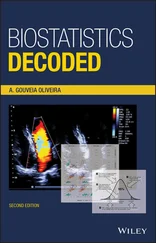Mai Jia - Decoded
Здесь есть возможность читать онлайн «Mai Jia - Decoded» весь текст электронной книги совершенно бесплатно (целиком полную версию без сокращений). В некоторых случаях можно слушать аудио, скачать через торрент в формате fb2 и присутствует краткое содержание. Год выпуска: 2014, Издательство: Allen Lane, Жанр: Современная проза, на английском языке. Описание произведения, (предисловие) а так же отзывы посетителей доступны на портале библиотеки ЛибКат.
- Название:Decoded
- Автор:
- Издательство:Allen Lane
- Жанр:
- Год:2014
- ISBN:нет данных
- Рейтинг книги:3 / 5. Голосов: 1
-
Избранное:Добавить в избранное
- Отзывы:
-
Ваша оценка:
- 60
- 1
- 2
- 3
- 4
- 5
Decoded: краткое содержание, описание и аннотация
Предлагаем к чтению аннотацию, описание, краткое содержание или предисловие (зависит от того, что написал сам автор книги «Decoded»). Если вы не нашли необходимую информацию о книге — напишите в комментариях, мы постараемся отыскать её.
Decoded — читать онлайн бесплатно полную книгу (весь текст) целиком
Ниже представлен текст книги, разбитый по страницам. Система сохранения места последней прочитанной страницы, позволяет с удобством читать онлайн бесплатно книгу «Decoded», без необходимости каждый раз заново искать на чём Вы остановились. Поставьте закладку, и сможете в любой момент перейти на страницу, на которой закончили чтение.
Интервал:
Закладка:
According to the records of the ‘Special Investigative Team’ at the time, this case involved, directly and indirectly, the following departments:
1. Unit 701.
2. A City’s police force.
3. A City’s PLA detachment and military reserves.
4. A City’s railway authorities.
5. All of A City’s affiliated government ministries.
6. B City’s police force.
7. B City’s PLA detachment and military reserves.
8. B City’s railway authorities.
9. B City’s health authorities.
10. B City’s Administrative Bureau.
11. B City’s Construction Administrative Bureau.
12. B City’s Communications Bureau.
13. B City’s Reporters Club.
14. B City’s Postal Authorities.
15. All of B City’s affiliated departments; and a countless number of other small work units and departments. The terrain to be covered included:
1. A City’s train station.
2. B City’s train station.
3. The 220 kilometres of track between A City and B City. 4. B City’s seventy-two registered guest houses.
5. B City’s 637 dustbins.
6. B City’s fifty-six public toilets.
7. B City’s forty-three kilometres of sewers.
8. B City’s nine rubbish tips.
9. The homes of all of B City’s residents.
More than 3,700 men were directly assigned to carrying out this job, including Rong Jinzhen and Vasili.
All 2,141 passengers on board came under direct scrutiny, as well as the 43 employees working on the train and the more than 600 plainclothes military men in B City. The train was delayed for five hours and thirty minutes.
The intelligence services in B City used up 484 hours on this case, equalling ten days and four hours.
According to what people said, this was the largest and most mysterious case G province had seen: tens of thousands of people had been disturbed, whole cities were thrown into upheaval; the scale and depth of this operation had never before been seen.
5
Returning to our main story (this is after all Rong Jinzhen’s story, which still isn’t over but rather is just entering a new phase). As soon as Rong Jinzhen stepped off the train and onto the platform in A City, he spied a delegation from Unit 701 approaching him — at the head was a rather exasperated and intimidating looking Director (not Zheng the Gimp, who had yet to be promoted to the post, but rather the predecessor of his predecessor). This was as it should be, thought Rong Jinzhen. Walking up to him, it was clear that the Director had lost all the respect he had once had for Rong Jinzhen. He looked at him with cold, menacing eyes.
Filled with terror, Rong Jinzhen cowered away from those eyes, but he could not escape the Director’s voice: ‘Why didn’t you place such sensitive and secret documents in the safety-deposit box?’
Everyone on the platform was fixated on the scene and saw what happened. There was a quick flash of something across Rong Jinzhen’s eyes that died away almost immediately, just like a tungsten filament burning out; then everything seemed to freeze as Rong Jinzhen went rigid and collapsed to the ground.
When the early morning light shone in through the window, Rong Jinzhen returned to the conscious world, and his eyes opened upon the hazy face of his wife. For one brief moment, he had fortuitously forgotten everything. He thought he was at home, in his own bed, and his wife had just woken him from some disturbing dream, her face looking anxious (perhaps she performed this duty quite frequently). But soon the white walls and the smells of medicine brought him fully back to reality; he realized he was in hospital. The shocking memory of what had happened returned and he heard the imposing voice of his Director: ‘Why didn’t you place such sensitive and secret documents in the safety-deposit box?’
‘Why?’
‘Why?’
‘Why. . ’ [Transcript of the interview with Director Zheng]
You must believe that Rong Jinzhen did not deliberately try to lose his attaché case. In fact, he was always very vigilant. Therefore if you said that this mess was the result of him lowering his guard, or because he was treating the whole thing too lightly, or that he was somehow neglecting his duty, well that would be awfully unfair. But not putting his notebook in the safety-deposit box was a lapse in judgement on his part; his vigilance had certainly left him then.
I remember clearly that before they set off on this trip, Vasili and I had repeatedly requested — had urged him over and over again — to place any secret documents (including anything that could identify him as a member of the intelligence service) in the safety-deposit box. And he had assured us that he would do so. On the trip back, according to Vasili, Rong Jinzhen had been very careful, he had placed all sensitive materials in the safety-deposit box, including a book of maxims written and given to him by the Director-General of the Intelligence Service, to secure anything that might expose his identity, especially his particular position, or compromise him. Virtually everything was placed in the safety-deposit box except for his notebook. As to why he left the notebook out: well, that has become an age-old and profound mystery. I believe, unconditionally, that it wasn’t because he intended to write in it that he made sure to leave the notebook out; that’s not possible. He didn’t take risks like that; he didn’t have the courage to do so. It’s as though there really was no reason for him not to put the notebook away, and although he tried to figure out why after it had been stolen, he couldn’t imagine a reason. What is strange, however, is that before it went missing, he didn’t really seem to be conscious of having the notebook with him (and even after it disappeared, he didn’t immediately think of it). Like a woman failing to notice that she has a needle slipped into the cuff of her shirt until it pricks her; normally you just wouldn’t think of it.
But for Rong Jinzhen, his notebook was most certainly not an overlooked needle — there was no reason for him to think of it as being something worthless. No doubt his original intention was to remember it, to think much about it, to ensure that it was not forgotten, to enshrine it within his very being itself. This was because for Rong Jinzhen, his notebook was his most important and most valuable possession. To use his own words: his notebook was the vessel for his soul.
If this was the case, how is it that he had neglected to put away his most precious possession?
That is a most impenetrable riddle. .
[To be continued]
Rong Jinzhen felt a profound sense of remorse about what had happened, and as though he had stumbled into a mysterious labyrinth, vainly searching for an answer to the riddle as to why he neglected to put his notebook away. At first, the darkness that lay within his mind was nearly impenetrable and brought about an acute feeling of vertigo, but gradually he adapted to it, and the darkness became his means of discovering the light. In this fashion he brought himself towards a most important thought: ‘Perhaps it was because I had prized it too much, had hidden it too deeply in the heart of my heart, that I had failed to see. . Perhaps I had subconsciously come to understand that my notebook was no longer my solitary companion, no longer a real concrete thing, just like my glasses. . Something so necessary can so easily be lost! For so long my notebooks had been part of my life, they had become part of my blood, a bodily organ. . I never felt them, just like a person is never truly aware of his heart or his blood. . It is only when sick that a person becomes cognisant of his physical body; only when your glasses go missing that you discover that you need them: that’s what happened with my notebook. . ’
Читать дальшеИнтервал:
Закладка:
Похожие книги на «Decoded»
Представляем Вашему вниманию похожие книги на «Decoded» списком для выбора. Мы отобрали схожую по названию и смыслу литературу в надежде предоставить читателям больше вариантов отыскать новые, интересные, ещё непрочитанные произведения.
Обсуждение, отзывы о книге «Decoded» и просто собственные мнения читателей. Оставьте ваши комментарии, напишите, что Вы думаете о произведении, его смысле или главных героях. Укажите что конкретно понравилось, а что нет, и почему Вы так считаете.












